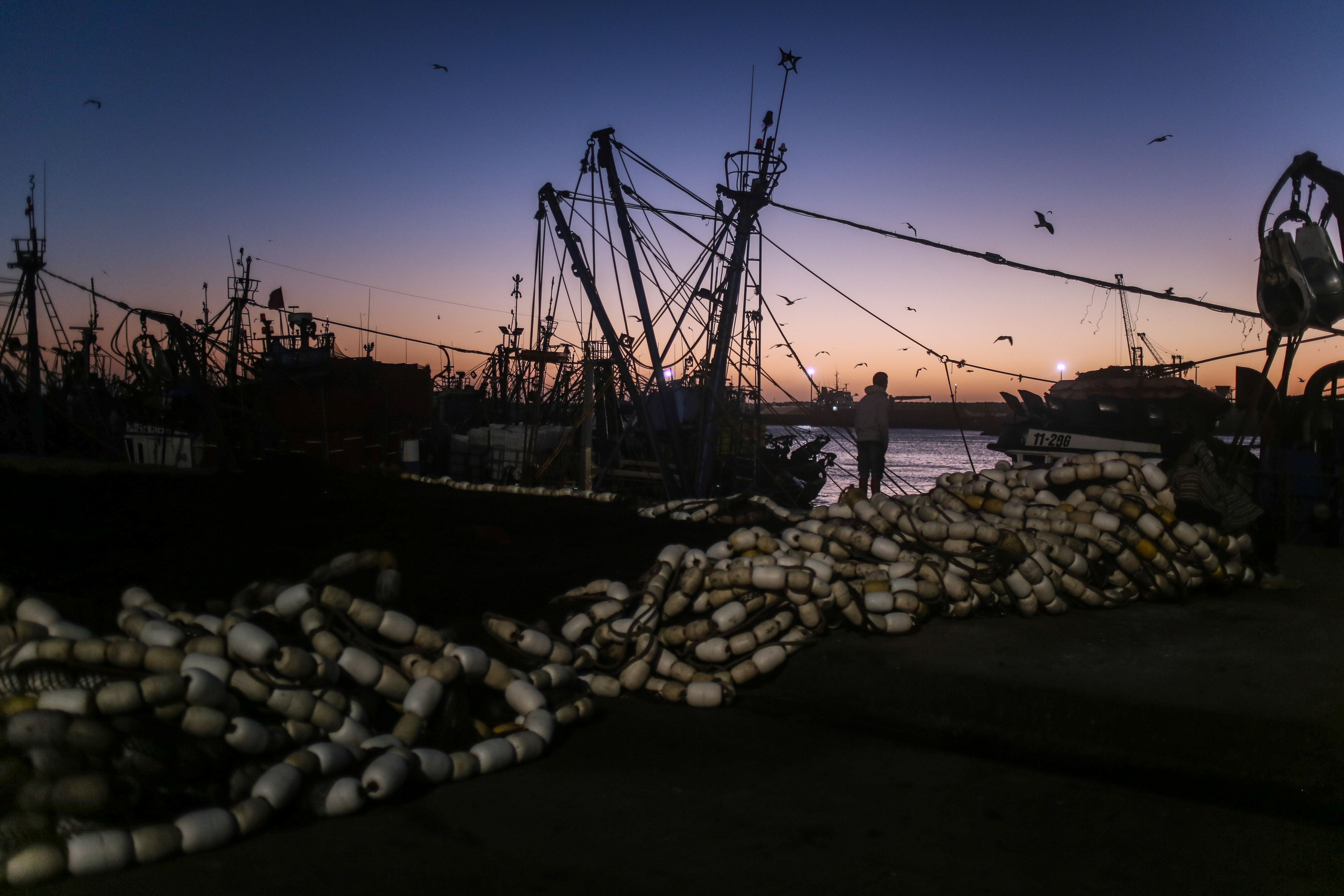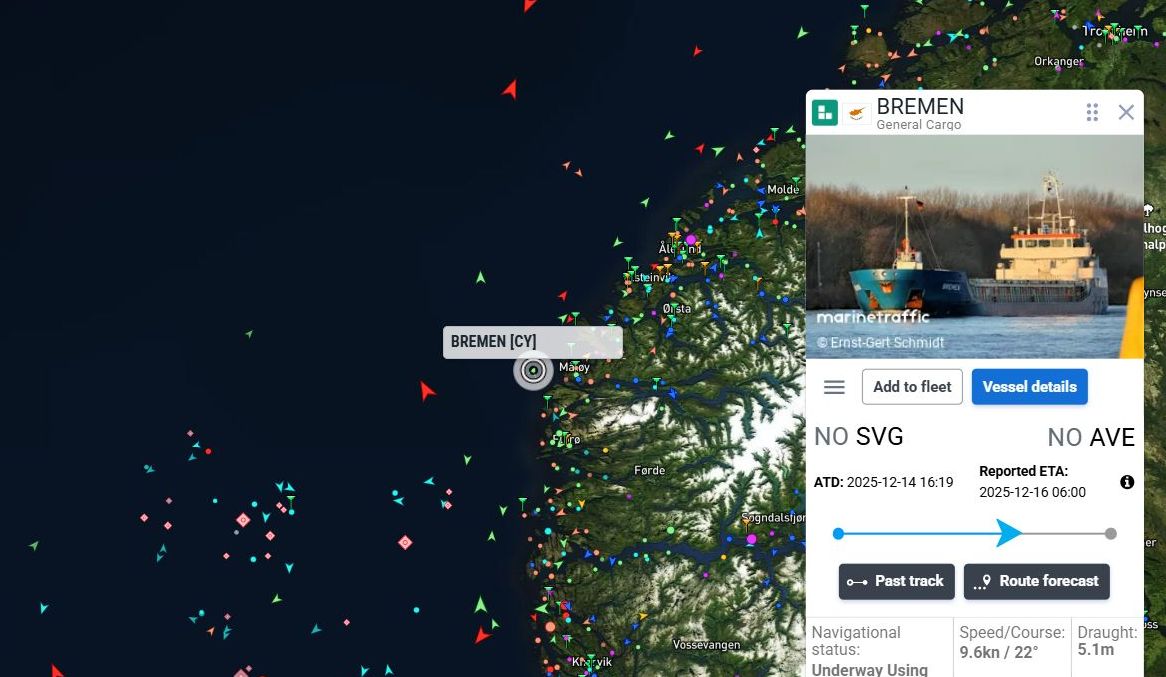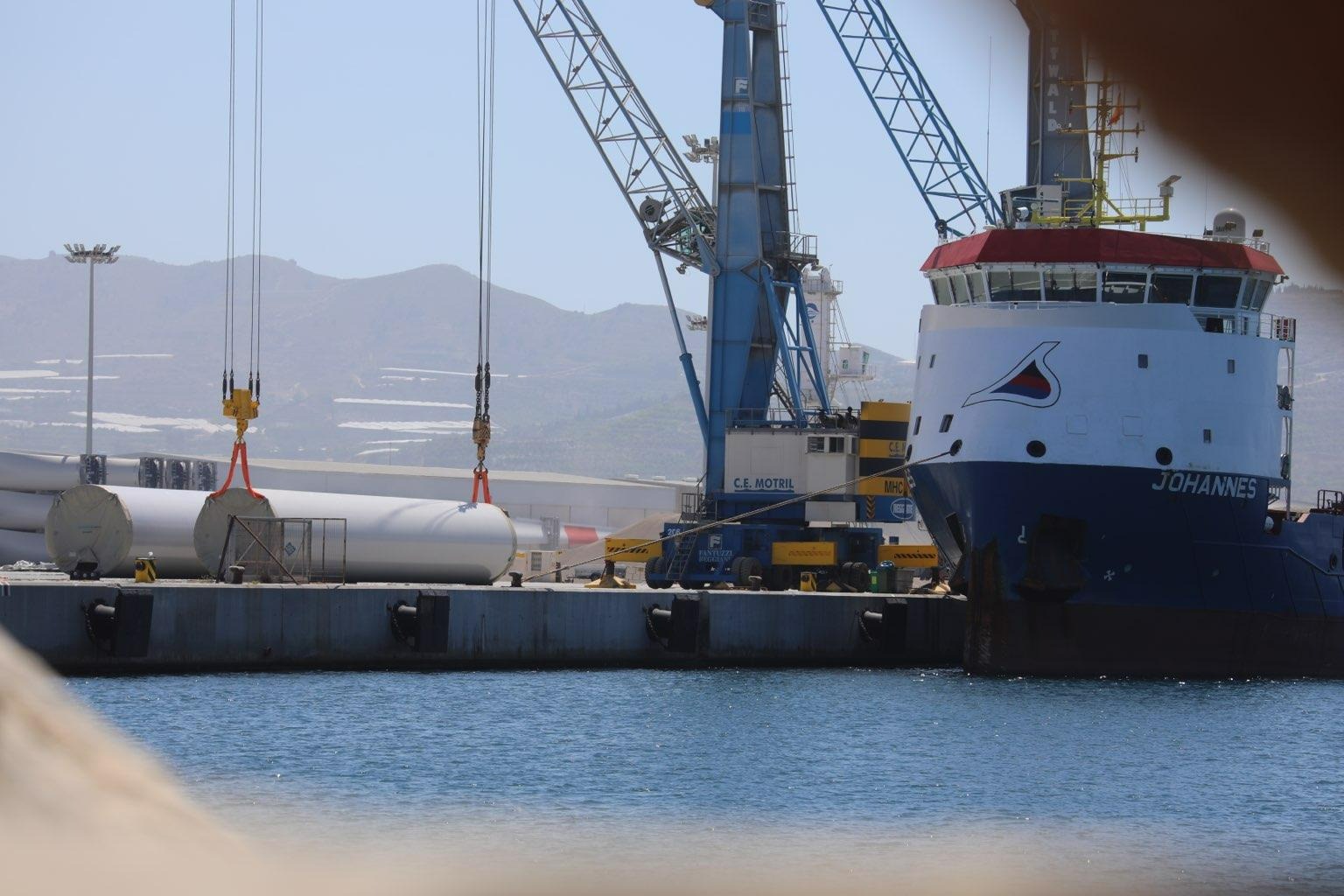Risikerer to år i fengsel for Facebook-live-video
Nazha Elkhalidi filmet en demonstrasjon på gaten i desember. Nå er hun tiltalt og riskerer to år bak murene. Her filmer hun sin egen pågripelse på Facebook Live.
Publisert 17. mars 2019
Den saharawiske journalisten Nazha Elkhalidi risikerer nå to år i fengsel for å ha filmet en fredelig demonstrasjon på gaten.
Hennes kolleger sendte 15. mars ut meldingen nedenfor.
l Aaiún, March 15, 2019 -- As Moroccan authorities increasingly crack down on Sahrawi independent journalists, Sahrawi media organizations are alerting human rights monitors and media that Nazha El Khalidi, a Sahrawi media activist, will face trial this March 18th for filming and uploading a video of a peaceful demonstration on the streets of El Aaiún, the capital city of Morocco-occupied Western Sahara. The trial is just the latest attempt by Morocco to criminalize and silence citizen journalists, who regularly face arbitrary arrest, ill treatment, torture and prison for their work.
El Khalidi, who collaborates with Equipe Media and RASD-TV, was arrested on December 4th, 2018 as she was live-streaming a protest on social media. The videocaptures the moment when police chase her. She said that she was later beaten, arrested and her cell phone was confiscated.
Equipe Media, a citizen media collective that clandestinely films and shares videos showing human rights violations committed by Moroccan forces in the occupied Western Sahara, says that El Khalidi was taken to police headquarters, interrogated and suffered ill treatment for several hours. She was released without charges on that same day but on March 4 police went to her house and took her to the police station, where she was again interrogated about her media activities.
Equipe Media and Watching Western Sahara, a media collective that curates and shares citizen videos from Western Sahara, made an urgent appeal: "We urge international human rights monitors and media to demand that Morocco respect freedom of the press and of expression in Western Sahara, and to stop harassing Sahrawi journalists. We are asking Morocco to drop charges against Nazha and to free Sahrawi journalists who are in prison for just doing their jobs". The Paris-based World Organization against Torture has condemnedEl Khalidi's arrest, which it considers to be arbitrary.
El Khalidi faces charges of "claiming or usurping a title associated with a profession that is regulated by law without meeting the necessary conditions to use it". According to Article 381 of the Moroccan Penal Code, if found guilty El Khalidi could be sentenced to between three months and two years, and to pay a fine of between 120 Dirhams (12 Euros) and 5.000 Dirhams (500 Euros). It is the first time that a Moroccan prosecutor levels these charges against a Sahrawi journalist, as media activists are often charged with unrelated crimes such as destruction of property.
All independent Sahrawi media collectives are banned in Western Sahara by Moroccan occupation authorities. Recently Abdellatif Hammoudi, the Moroccan chief of the Directorate of Surveillance of the National Territory (DSGT), the main Moroccan intelligence agency, issued an order to arrest anyone found filming police, signaling what Sahrawi media activists say has been the start of a new crackdown against them.
El Khalidi was covering a demonstration on December 4, 2018 in support of renewed UN-sponsored talks in Geneva between the Sahrawi Polisario Front and Morocco to resolve the 43 year-old conflict. According to El Khalidi, "people had come out on the streets to peacefully express their support for the resolution of the conflict. I was covering the protest on Smara Avenue; less than four minutes into my broadcast police chased and grabbed me, beat me and forced me into a police car. I was at the police station for hours, where they interrogated, threatened and physically abused me".
El Khalidi added that "we try to shed light on human rights violations in Western Sahara, and this puts our safety at risk. We are exposed to arrest and torture. Our families are pressured and threatened. The only 'crime' I committed was to film police violence against peaceful Sahrawis and for this I can be jailed for months or years. But we have to do it in order to break the media blackout imposed by Morocco".
El Khalidi was also arrested on August 21st 2016 when she was covering a women's demonstration. In that case, Moroccan police confiscated her camera. She spent the night in police headquarters, where she was interrogated and suffered from ill treatment, but she was released without charges.
In the past years, an increasing number of Sahrawi citizen journalists in Western Sahara are filming and sharing footagedepicting the Moroccan occupation, and Morocco has responded with increased arbitrary arrests, prison sentences, harassment and physical abuse against them. Equipe Media was recently awarded the Julio Anguita XII International Journalism Award, named after Spanish war correspondent Anguita, who was killed during the Iraq war, "for often being the only source of information, at great risk to their security and physical integrity, about the dire situation faced by the Sahrawi population".
On February 29th, Front Line Defenders issued an urgent appealdetailing the systematic harassment by Morocco of Sahrawi human rights defenders, including media activists and journalists. "At least a dozen human rights defenders, journalists, and media activists have been targeted by authorities in Western Sahara in the last few months, after videos showing Moroccan police using an inordinate level of violence against peaceful protesters in Western Sahara went viral on social media in 2018", said the urgent appeal, which also urged authorities to cease harassing and intimidating them.
In 2018, the UN Working Group on Arbitrary Detention calledfor the immediate release of Sahrawi journalist Mohamed Al Banbari, a member of Equipe Media who is serving a six-year sentence in a Moroccan prison, after finding Morocco in violation of international law for arbitrarily detaining him. The US State Department's 2018 Western Sahara human rights reportalso mentions the arrest of two Smara News journalists, who were sentenced to two years in prison after recording and sharing footage of a demonstration in the city of Smara.
In 2016 Reporters without Borders appealed to Morocco to "end all reporting restrictions"after two Sahrawi journalists were arrested and held for three days, during which time they were interrogated and suffered from ill treatment while their families searched for them. "By detaining reporters during demonstrations, putting Sahrawi citizen journalists on trial and deporting foreign journalists, the Moroccan authorities make life impossible for media personnel and maintain an arbitrary control over reporting in this territory", concluded RSF.
Hennes kolleger sendte 15. mars ut meldingen nedenfor.
l Aaiún, March 15, 2019 -- As Moroccan authorities increasingly crack down on Sahrawi independent journalists, Sahrawi media organizations are alerting human rights monitors and media that Nazha El Khalidi, a Sahrawi media activist, will face trial this March 18th for filming and uploading a video of a peaceful demonstration on the streets of El Aaiún, the capital city of Morocco-occupied Western Sahara. The trial is just the latest attempt by Morocco to criminalize and silence citizen journalists, who regularly face arbitrary arrest, ill treatment, torture and prison for their work.
El Khalidi, who collaborates with Equipe Media and RASD-TV, was arrested on December 4th, 2018 as she was live-streaming a protest on social media. The videocaptures the moment when police chase her. She said that she was later beaten, arrested and her cell phone was confiscated.
Equipe Media, a citizen media collective that clandestinely films and shares videos showing human rights violations committed by Moroccan forces in the occupied Western Sahara, says that El Khalidi was taken to police headquarters, interrogated and suffered ill treatment for several hours. She was released without charges on that same day but on March 4 police went to her house and took her to the police station, where she was again interrogated about her media activities.
Equipe Media and Watching Western Sahara, a media collective that curates and shares citizen videos from Western Sahara, made an urgent appeal: "We urge international human rights monitors and media to demand that Morocco respect freedom of the press and of expression in Western Sahara, and to stop harassing Sahrawi journalists. We are asking Morocco to drop charges against Nazha and to free Sahrawi journalists who are in prison for just doing their jobs". The Paris-based World Organization against Torture has condemnedEl Khalidi's arrest, which it considers to be arbitrary.
El Khalidi faces charges of "claiming or usurping a title associated with a profession that is regulated by law without meeting the necessary conditions to use it". According to Article 381 of the Moroccan Penal Code, if found guilty El Khalidi could be sentenced to between three months and two years, and to pay a fine of between 120 Dirhams (12 Euros) and 5.000 Dirhams (500 Euros). It is the first time that a Moroccan prosecutor levels these charges against a Sahrawi journalist, as media activists are often charged with unrelated crimes such as destruction of property.
All independent Sahrawi media collectives are banned in Western Sahara by Moroccan occupation authorities. Recently Abdellatif Hammoudi, the Moroccan chief of the Directorate of Surveillance of the National Territory (DSGT), the main Moroccan intelligence agency, issued an order to arrest anyone found filming police, signaling what Sahrawi media activists say has been the start of a new crackdown against them.
El Khalidi was covering a demonstration on December 4, 2018 in support of renewed UN-sponsored talks in Geneva between the Sahrawi Polisario Front and Morocco to resolve the 43 year-old conflict. According to El Khalidi, "people had come out on the streets to peacefully express their support for the resolution of the conflict. I was covering the protest on Smara Avenue; less than four minutes into my broadcast police chased and grabbed me, beat me and forced me into a police car. I was at the police station for hours, where they interrogated, threatened and physically abused me".
El Khalidi added that "we try to shed light on human rights violations in Western Sahara, and this puts our safety at risk. We are exposed to arrest and torture. Our families are pressured and threatened. The only 'crime' I committed was to film police violence against peaceful Sahrawis and for this I can be jailed for months or years. But we have to do it in order to break the media blackout imposed by Morocco".
El Khalidi was also arrested on August 21st 2016 when she was covering a women's demonstration. In that case, Moroccan police confiscated her camera. She spent the night in police headquarters, where she was interrogated and suffered from ill treatment, but she was released without charges.
In the past years, an increasing number of Sahrawi citizen journalists in Western Sahara are filming and sharing footagedepicting the Moroccan occupation, and Morocco has responded with increased arbitrary arrests, prison sentences, harassment and physical abuse against them. Equipe Media was recently awarded the Julio Anguita XII International Journalism Award, named after Spanish war correspondent Anguita, who was killed during the Iraq war, "for often being the only source of information, at great risk to their security and physical integrity, about the dire situation faced by the Sahrawi population".
On February 29th, Front Line Defenders issued an urgent appealdetailing the systematic harassment by Morocco of Sahrawi human rights defenders, including media activists and journalists. "At least a dozen human rights defenders, journalists, and media activists have been targeted by authorities in Western Sahara in the last few months, after videos showing Moroccan police using an inordinate level of violence against peaceful protesters in Western Sahara went viral on social media in 2018", said the urgent appeal, which also urged authorities to cease harassing and intimidating them.
In 2018, the UN Working Group on Arbitrary Detention calledfor the immediate release of Sahrawi journalist Mohamed Al Banbari, a member of Equipe Media who is serving a six-year sentence in a Moroccan prison, after finding Morocco in violation of international law for arbitrarily detaining him. The US State Department's 2018 Western Sahara human rights reportalso mentions the arrest of two Smara News journalists, who were sentenced to two years in prison after recording and sharing footage of a demonstration in the city of Smara.
In 2016 Reporters without Borders appealed to Morocco to "end all reporting restrictions"after two Sahrawi journalists were arrested and held for three days, during which time they were interrogated and suffered from ill treatment while their families searched for them. "By detaining reporters during demonstrations, putting Sahrawi citizen journalists on trial and deporting foreign journalists, the Moroccan authorities make life impossible for media personnel and maintain an arbitrary control over reporting in this territory", concluded RSF.
Nyheter
Bli medlem. Få plakat
Slik kan du bli medlem, og få verdens fineste plakat i posten.
12. februar 2026
Ny rapport: Sertifiserte folkerettsbrudd
Internasjonale sertifiseringsstandarder dekker over Marokkos kontroversielle handel med fiskeri- og landbruksprodukter fra okkupert Vest-Sahara, dokumenterer ny rapport.
16. desember 2025
Nå: Skip ankommer Skretting på Averøy med last fra kontroversiell leverandør
Et fartøy med fiskemel ankommer i natt Averøy utenfor Kristiansund. Transporten åpner spørsmål om et hullete sertifiseringssystem.
15. desember 2025
Ny rapport: Marokko grønnvasker okkupasjonen av Vest-Sahara
En ny rapport beskriver de massive - og dypt problematiske - prosjektene for fornybar energi som Marokko utvikler i okkuperte Vest-Sahara.
11. desember 2025



